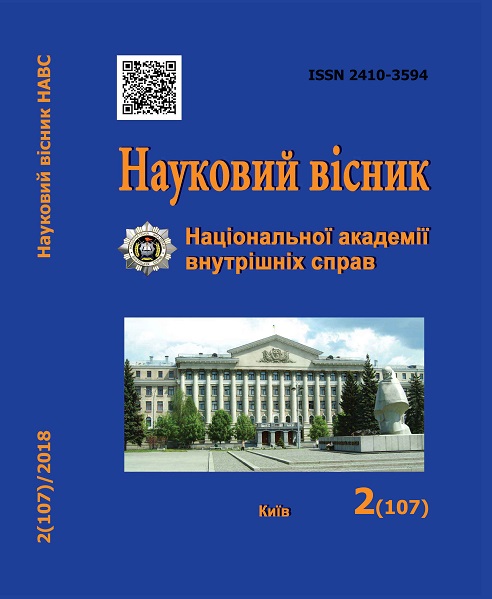Prevention of the Organized Crime Internationalization at the International and National Levels
Abstract
The purpose of the article is to analyze the system of international normative legal acts in the field of prevention of organized crime in order to detect the connection of internationalization and organized crime, as well as to improve measures to prevent these unlawful phenomena. The problems of the impact of internationalization of organized crime on the crime situation in Ukraine are highlighted; types of crimes committed by international organized crime groups; the specific weight of crime related to foreign citizens, as well as measures to prevent this phenomenon, in particular regarding the illegal stay in Ukraine of persons who live without the necessary documents and permits, the use of counterfeit passports and visas, and the issue of their removal. The implementation of international legal norms in the national legislation is analyzed, their advantages and disadvantages are determined. The problematic aspects that impede effective cooperation and prevention of organized crime at both the national and international levels are outlined. Conclusions. To effectively prevent organized crime, it is necessary to put in place a mechanism to strengthen the state system of destructive influence on crime, to create social mechanisms that would enable to neutralize the advantages of organized crime, its invulnerability, the priority of the pace of evolution of the mafia over the pace of evolution of state anti-criminal structures.
Downloads
Abstract views: 139 PDF Downloads: 117
- Authors reserve the right to authorship of their own work and transfer to the magazine the right of the first publication of this work under the terms of the Creative Commons Attribution License, which allows other persons to freely distribute published work with mandatory reference to authors of the original work and the first publication of an article in this magazine.
- Authors have the right to enter into separate additional agreements on non-exclusive dissemination of the work in the form in which it was published in the journal (for example, to post an article in the institution's repository or to publish as part of a monograph), provided that the link to the first publication of the work in this journal is maintained.
- The journal's policy allows and encourages the posting of articles by authors on the Internet (for example, in electronic storehouses of institutions or on personal websites), both before the submission of this manuscript to the editorial office and during its editorial processing, as this contributes to the creation of a productive scientific discussion and positively affects the efficiency and dynamics of citing the published work.




